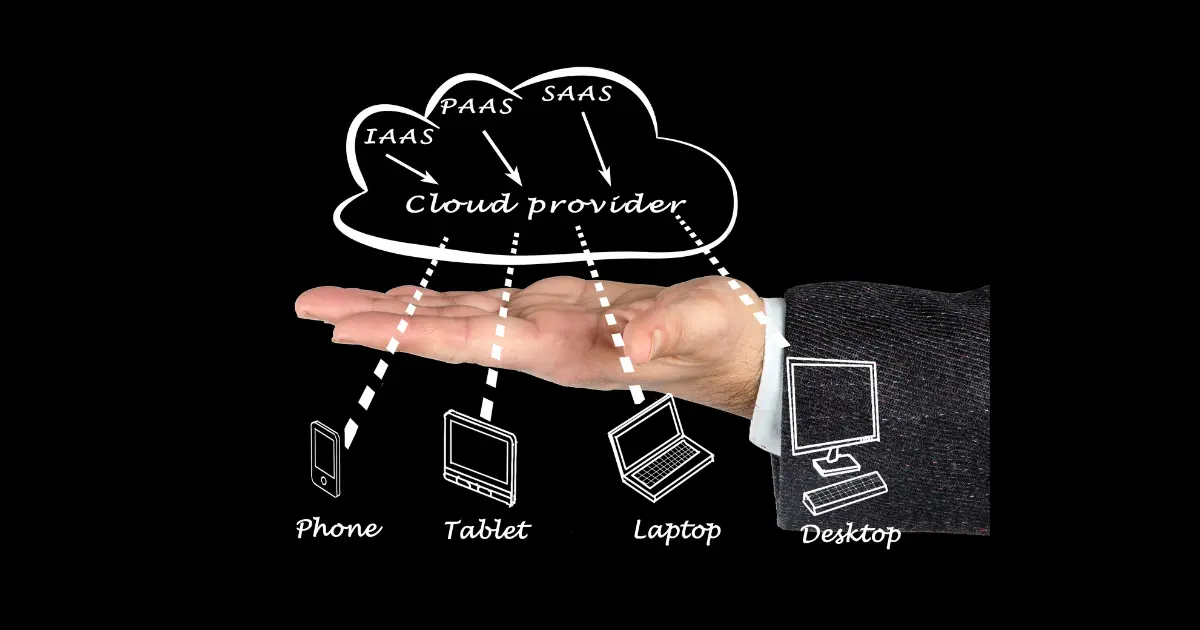Starting a business in Kenya’s thriving tech ecosystem is exciting, but with great digital opportunities comes great responsibility, especially when it comes to protecting your data in the cloud. If you’re running a startup in Nairobi, Mombasa, or anywhere across Kenya, understanding cloud security in Kenya isn’t just important; it’s absolutely essential for your business survival.
Let’s face it, cyber threats don’t respect borders, and Kenyan businesses are increasingly becoming targets for cybercriminals. But here’s the good news: with the right approach to cloud security best practices, you can protect your startup without breaking the bank or requiring a computer science degree. For a deeper dive into safeguarding your business data, check out our Comprehensive Guide to Data Protection. It’s packed with practical steps and expert tips to help you stay secure and compliant.
Why Cloud Security Matters More Than Ever for Kenyan Startups
Kenya’s digital transformation is accelerating at lightning speed. From mobile money innovations to fintech solutions, Kenyan startups are leading Africa’s tech revolution. However, this rapid digitization has also attracted unwanted attention from cybercriminals who see opportunities in less secure systems.
Recent studies indicate that cyberattacks in East Africa have increased by over 230% in the past two years. This makes cloud security in Kenya a critical concern for every business owner. Whether you’re handling customer data, financial information, or intellectual property, your cloud infrastructure needs to be bulletproof.
The reality is simple: a single data breach can destroy years of hard work and trust-building with your customers. For startups operating on tight budgets, the cost of a security incident can be devastating, sometimes even fatal to the business. That’s why understanding how to handle such situations with clarity and honesty is critical. You can learn more about the role of transparency in protecting your brand during a crisis in this guide on data breach management.
Understanding the Cloud Security Landscape in Kenya
Before diving into best practices, let’s understand what cloud security in Kenya actually means. Cloud security refers to the policies, technologies, and controls deployed to protect data, applications, and infrastructure in cloud computing environments.
In Kenya’s context, this becomes even more complex due to several factors. First, there’s the regulatory environment, Kenya’s Data Protection Act requires businesses to implement appropriate security measures when handling personal data. Second, there’s the infrastructure challenge. While internet connectivity has improved dramatically, inconsistencies can create vulnerabilities.
Many Kenyan startups make the mistake of thinking that moving to the cloud automatically means their data is secure. That’s like assuming your house is safe just because you live in a gated community. Yes, cloud providers offer security features, but implementing cloud security solutions in Kenya requires active participation from your end. For a deeper look at why protecting your data matters and how to do it right, check out this detailed guide on the importance of data security.
5 Essential Cloud Security Best Practices for Kenyan Startups
1. Choose Your Cloud Provider Wisely

Not all cloud providers are created equal, especially when considering cloud security services in Kenya. Look for providers that offer data centers within Africa or have strong partnerships with local telecommunications companies. This reduces latency and ensures better compliance with Kenyan data protection laws.
Consider factors like encryption standards, compliance certifications, and their track record in handling security incidents. Major providers like Amazon Web Services, Microsoft Azure, and Google Cloud all have robust security features, but smaller, regional providers might offer more personalized support and a better understanding of local regulations.
2. Implement Strong Identity and Access Management
One of the biggest vulnerabilities in cloud security in Kenya implementations is weak access controls. Every person in your startup should have access only to the data and systems they absolutely need to do their job, nothing more.
Start by implementing multi-factor authentication (MFA) for all users. Yes, it might seem annoying at first, but it’s one of the most effective ways to prevent unauthorized access. Think of it as having multiple locks on your front door; even if someone has one key, they still can’t get in.
Create clear user roles and regularly review who has access to what. When employees leave or change roles, immediately update their access permissions. It’s surprising how many security breaches happen simply because someone forgot to revoke access for a former employee.
3. Encrypt Everything, Everywhere
Data encryption should be non-negotiable in your cloud security strategy in Kenya. Encrypt data both when it’s stored (at rest) and when it’s being transmitted (in transit). Most reputable cloud providers offer encryption services, but you need to enable and configure them actively.
Don’t just rely on your cloud provider’s default settings. Implement end-to-end encryption for sensitive communications and consider using your own encryption keys for the most critical data. This ensures that even if someone gains unauthorized access to your cloud storage, they can’t actually read your data.
4. Regular Security Monitoring and Logging
You can’t protect what you can’t see. Implementing comprehensive logging and monitoring is crucial for effective cloud security solutions in Kenya. Set up alerts for unusual activities, failed login attempts, and unexpected data transfers.
Many cloud providers offer built-in monitoring tools, but consider investing in third-party security monitoring solutions that can provide more detailed insights. The goal is to detect potential threats before they become actual breaches.
Create a routine of reviewing security logs weekly. Yes, it might seem tedious, but patterns often emerge that can help you identify vulnerabilities before attackers do.
5. Backup and Disaster Recovery Planning

Hope for the best, but plan for the worst. Even with the best cloud security measures in place, incidents can still happen. Having a robust backup and disaster recovery plan can mean the difference between a minor inconvenience and a business-ending catastrophe.
Implement the 3-2-1 backup rule: keep 3 copies of important data, store them on 2 different types of media, and keep 1 copy offsite. Test your backup and recovery procedures regularly; a backup that doesn’t work when you need it is worse than no backup at all.
Regulatory Compliance and Legal Considerations
Understanding cloud security in Kenya isn’t complete without considering the legal landscape. Kenya’s Data Protection Act requires businesses to implement appropriate technical and organizational measures to protect personal data.
This means you need to document your security measures, conduct regular risk assessments, and be able to demonstrate compliance with data protection principles. Don’t view this as a burden; think of it as a competitive advantage. Customers are increasingly choosing businesses they trust with their data.
If your startup handles financial data, you’ll also need to comply with the Central Bank of Kenya regulations. For health-related startups, additional healthcare data protection requirements apply. The key is to understand your specific compliance obligations early and build them into your security framework from the start.
Budget-Friendly Security Solutions for Startups
As a Kenyan startup, you probably don’t have unlimited resources for cloud security services in Kenya. The good news is that effective security doesn’t have to break the bank.
Start with the free security features offered by your cloud provider. Most major providers offer basic security tools at no extra cost. These often include firewalls, basic monitoring, and standard encryption features.

Consider open-source security tools for tasks like vulnerability scanning and log analysis. Many excellent free tools are available that can provide enterprise-level security capabilities without the enterprise-level price tag.
Invest in employee training; many security breaches happen due to human error, not technical failures. A well-trained team is often more valuable than expensive security software. If you want to equip your team with practical, hands-on skills to prevent costly mistakes, explore our cybersecurity training programs designed specifically for startups in Kenya.
Building a Security-First Culture
Creating effective cloud security in Kenya isn’t just about technology; it’s about culture. Everyone in your startup, from the CEO to interns, should understand their role in maintaining security.
Start with regular security awareness training. Make it engaging and relevant to their specific roles. A developer needs to understand secure coding practices, while your marketing team needs to know about social engineering attacks.
Create clear security policies and make sure everyone knows them. But don’t just create policies and forget about them; regularly review and update them based on new threats and changing business needs.
Encourage a culture where reporting potential security issues is rewarded, not punished. Many breaches are discovered by employees who notice something unusual but are afraid to speak up.
Frequently Asked Questions (FAQs)
How much should a Kenyan startup budget for cloud security?
Most security experts recommend allocating 10-15% of your IT budget to security. For early-stage startups, this might be as little as KES 50,000-100,000 per year, focusing on essential protections like multi-factor authentication, basic monitoring, and employee training. As you grow and handle more sensitive data, this investment should scale accordingly.
Are there specific cloud security regulations I need to follow in Kenya?
Yes, the primary regulation is Kenya’s Data Protection Act (2019), which requires appropriate technical and organizational measures to protect personal data. If you’re in financial services, you’ll also need to comply with Central Bank of Kenya guidelines. Healthcare startups have additional requirements under various health sector regulations.
How do I know if my current cloud security is adequate?
Conduct regular security assessments, including vulnerability scans and penetration testing. Monitor your security logs for unusual activities, and consider hiring a cybersecurity consultant for an independent review. If you can’t answer basic questions about who has access to your data and how it’s protected, you likely need to strengthen your security measures.
What should I do if I suspect a security breach?
Act immediately: isolate affected systems, preserve evidence, notify your cloud provider, and contact local authorities if required. Under Kenya’s Data Protection Act, you must report certain breaches to the Data Protection Commissioner within 72 hours. Have an incident response plan prepared before you need it.
Conclusion
The cloud security landscape is constantly evolving. New threats emerge regularly, and security technologies are continuously advancing. Your security strategy needs to be flexible enough to adapt to these changes.
Stay informed about emerging threats specific to the Kenyan market. Join local cybersecurity groups, attend industry conferences, and subscribe to security newsletters. The more you know about current threats, the better you can protect against them.
Consider working with Johan consults a cybersecurity consultants who understand both international best practices and the specific challenges facing Kenyan businesses. Sometimes an outside perspective can identify vulnerabilities you’ve missed, and if you’re ready to take that step, you can book a tailored consultation here to strengthen your security posture.
Plan for scalability from the beginning. The security measures that work for a 5-person startup might not be adequate when you grow to 50 employees. Build flexibility into your security architecture so you can evolve without starting from scratch.










